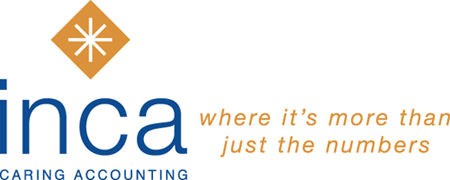HMRC have recently reiterated their intention to clamp down on anyone avoiding paying tax by not declaring all their sources of income
HMRC is employing new technology and extra staff in its efforts to track down individuals who – whether knowingly or unknowingly – might not be declaring all their income. They are also encouraging members of the general public to support them by making them aware of people they think are not declaring earnings. (see https://www.gov.uk/report-an-unregistered-trader-or-business).

If you’re already declaring all your income, there’s nothing to be concerned about, but if there are any ‘grey’ areas you’re unclear about, now would certainly be a good time to take professional advice. It goes without saying that keeping on the right side of HMRC is something we should all endeavour to do. It’s always preferable to proactively volunteer information, rather than wait for HMRC to come to you, and doing so will help mitigate any fines or charges if any are due.
When you start your own business and become self-employed for the first time, making the transition from having your tax calculated for you, and deducted at source through the PAYE system can initially at least, seem confusing. You need to make HMRC aware of all your income; every individual’s circumstances will be unique.
Areas which can sometimes be overlooked include:
-
Income from ad-hoc employment
Are you doing any freelance consulting work while you get your business established? Or perhaps you are earning income from a hobby you’ve managed to monetise? Either way, you’ll need to declare all your income – however it originates, to HMRC.
-
Income from property rentals
Income from property rentals can sometimes be overlooked, but it’s essential to declare it if you are not to fall foul of HMRC. We’ve come across instances where clients have been bequeathed a property, decided their best option is to let it out, but failed to immediately notify HMRC of the rental income they are receiving. In such situations, the actions may be carried out innocently, but HMRC will not look on this favourably if it’s left to them to uncover it – as they inevitably will. Working in conjunction with banks and building societies, HMRC will look for clues such as where a buy-to-let mortgage has been taken out, but there appears to be no corresponding rental income being reported.
-
Income from overseas investments
In line with government policy, HMRC is working with international financial institutions to find evidence of UK nationals who may be sheltering undeclared funds in overseas accounts – and it’s not only celebrities and foot-ballers they are interested in. If you are earning any income from international investments, you need to make HMRC aware of them. Even where your income has already been taxed overseas, you should take advice as to whether you need to declare it on your tax return.
If you are self-employed or a company director, you will need to complete a Self-Assessment Tax Return each financial year
For full details of exactly who should complete a tax return please click here. If you have an accountant, they will advise you what you need to disclose on your return, and will help you to complete it. If however, you fall into the category of individuals who need to complete a return, but you don’t yet have an accountant, don’t panic.
You might not consider yourself to be in the ‘big league’ in relation to your earnings, but you will still attract the attention of HMRC if you are not ‘squeaky clean’ in your dealings with them.
There's no need for sleepless nights!
If you’d like to clarify a point relating to your income, or enjoy total peace of mind by having us take responsibility for completing and filing your tax return on your behalf, give us a call now and let’s chat through your situation!
Give us a call, drop us an email or request a call back and let’s get the ball rolling.
Phone: 01235 868888 or Email: [email protected].



